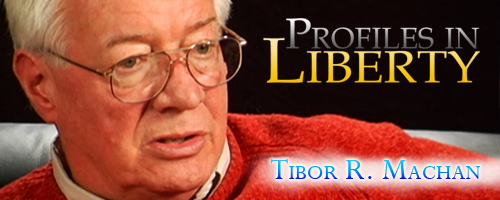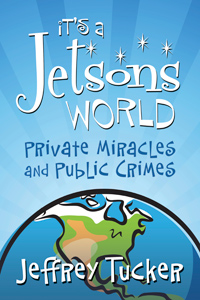Last week, the Heritage Foundation published commentary on the number of Americans who pay income tax, and decried the fact that 49.5 percent of Americans are “not represented on a taxable return.” The Daily Mail then picked up the statistics and announced that “HALF of Americans don’t pay income tax despite crippling government debt.”
To its credit, the body of the Heritage post began with a reference to the “the sharp increase of Americans who rely on the federal government for housing, food, income, student aid or other assistance.” The emphasis of the piece, however, and thus, the emphasis of the other news outlets and pundits who have picked up on the statistic, is that too few people pay taxes.
The increase in reliance on government assistance is the problem here, not a lack of people who pay income tax.
Yet, it has become something of a right-wing talking point to claim that a declining number of taxpayers among some income groups is a nefarious development in American history.
The emphasis on the lack of taxpayers is getting the whole issue backward. The problem is the increase of income from government transfer payments. There is nothing bad whatsoever about fewer people paying income taxes.
The Conservative obsession with getting people to pay more in taxes comes from a preoccupation with class warfare in which it is assumed that if middle-class and wealthy people are paying too much in taxes (which they are), then the solution is to punish low-income people by making them pay more in taxes. It’s allegedly not “fair” if everyone is not being extorted by the state in a similar fashion.
The just solution, however, is to greatly decrease the tax burden of those paying taxes now. In a recent NPR interview, Ron Paul nicely summed up what is actually “fair”:
MR. SIEGEL: This week’s release of Mitt Romney’s taxes and President Obama’s advocacy of a millionaire’s tax raise questions about fairness in funding the government. The first question: Do you believe that income derived from dividends interest or capital gains should be taxed at a lower rate than income earned from a salary or commissions?
REP. PAUL: Well, I’d like to have everybody taxed at the same rate, and of course, my goal is to get as close to zero as possible, because there was a time in our history when we didn’t have income taxes. But when government takes it upon themselves to do so much, you have to have a tax code. But if you’re going to be the policemen of the world and run all these wars, you have to have a tax code. But as far as what the rates should be, I think it should be as low as possible for – for everybody.
It’s a safe bet that Siegel’s underlying assumption behind the question is that in order to make taxes fair, then anyone who is paying a tax bill that is too “low” should therefore have his taxes raised.
The opposite is true, as noted by Paul.
So, when Conservatives get bent out of shape about some people not paying tax, the response should be to demand lower taxes for everyone, not to complain that people aren’t paying their “fair share,” which seems to be the Conservative sentiment.
We might also note that this statistic apparently only applies to income taxes. It says nothing about payroll taxes, which for many middle-class people is by far the largest part of one’s monthly tax bill. Any teenager with his first job notices just how much those payroll taxes take out of one’s paycheck. So, to claim that people aren’t paying taxes simply because they’re not paying income tax is rather disingenuous. Since there’s no such thing as a Social Security or Medicare trust fund, payroll taxes are really just income taxes under another name.
Also, any demand for more taxation is really just a demand for increased government revenue. It’s a call for more money so government can bomb more people, bail out more banks and spread around more largesse to politically well-connected friends.
So, the focus on whether or not “enough” people are paying taxes completely misses the point. The larger point is that far too many Americans receive government benefits. Indeed, recent increases in income as measured by the BLS, reflect increases in government transfer payments, as I’ve shown here.
Ludwig von Mises wrote in Bureaucracy that a system in which a majority of the population is dependent on the government dole leads to an unstable political and economic situation, since a majority of the population then has a vested interest in increasing the power of government to redistribute wealth. While the Heritage article makes some comments in this vein, it nevertheless makes the claim that “The rapid growth of Americans who don’t pay income taxes is particularly alarming for the fate of the American form of government.” Really? By that logic, “the American form of government” would be in danger if the income tax were abolished. Oh, how did America ever survive prior to the 16th Amendment?
There is no doubt that the growth in dependency on government largesse is a serious problem, but that doesn’t mean that any American pays too little in taxes. It simply means that the government spends too much money.
The Conservative reaction to this statistic, however, seem to be: “Hey, those guys aren’t being taxed! Tax them!” This is hardly a phrase that should be uttered by anyone who claims to be for limited government.
 Profiles in Liberty: Tibor Machan, by Stephen Hicks. Great profile of an important libertarian thinker and good friend of mine. “Tibor Machan is professor of philosophy at Chapman University in California. He was born in Communist Hungary, smuggled out as a teenager, and came to the United States, where he earned his Ph.D. from the University of California, Santa Barbara. A prolific writer, he has published over forty books and scores of essays. A recent collection of scholarly essays on Machan’s work, Reality, Reason, and Rights: Essays in Honor of Tibor R. Machan, edited by Douglas B. Rasmussen, Aeon J. Skoble, and Douglas J. Den Uyl, was published in 2011.”
Profiles in Liberty: Tibor Machan, by Stephen Hicks. Great profile of an important libertarian thinker and good friend of mine. “Tibor Machan is professor of philosophy at Chapman University in California. He was born in Communist Hungary, smuggled out as a teenager, and came to the United States, where he earned his Ph.D. from the University of California, Santa Barbara. A prolific writer, he has published over forty books and scores of essays. A recent collection of scholarly essays on Machan’s work, Reality, Reason, and Rights: Essays in Honor of Tibor R. Machan, edited by Douglas B. Rasmussen, Aeon J. Skoble, and Douglas J. Den Uyl, was published in 2011.” The World No One Will Tell You is Possible, Radio Free Market interview with Jeff Tucker, about various themes discussed in his book It’s a Jetsons World, such as intellectual property and other issues.
The World No One Will Tell You is Possible, Radio Free Market interview with Jeff Tucker, about various themes discussed in his book It’s a Jetsons World, such as intellectual property and other issues.


